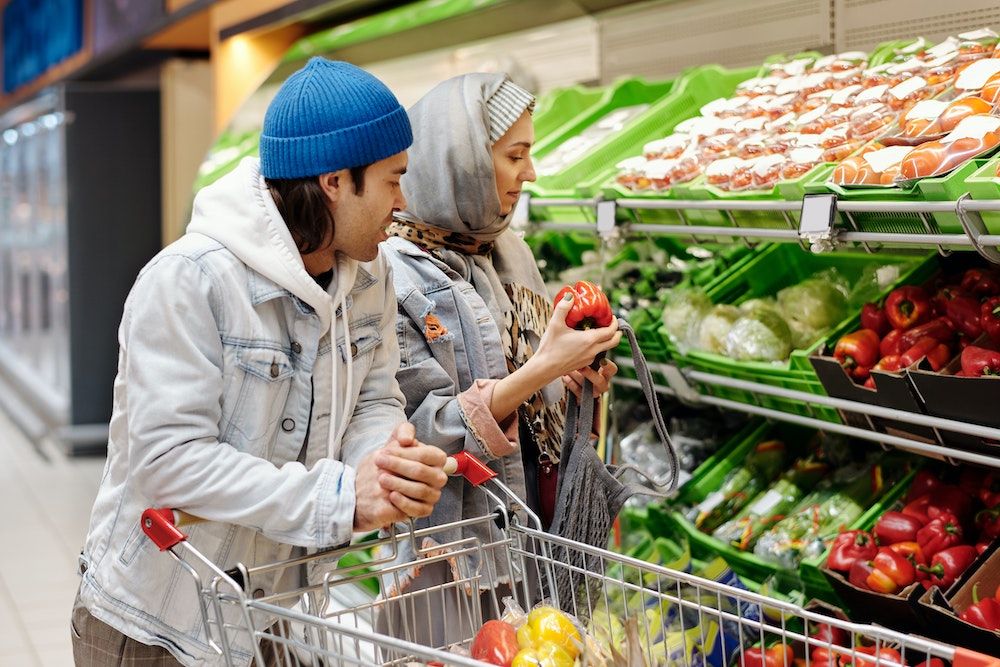The sharing economy: What is it and what can it teach us about the future of consumerism?
updated on Oct 19, 2023

Could the phrase ‘sharing is caring’ really encapsulate the future of consumerism?
These days, who hasn’t called an Uber, stayed in an Airbnb, or tried out a co-working space at some point? But, as helpful a service as they might offer, have you ever paused to contemplate what the concept behind these businesses could teach us about the future of consumerism?
With the cost of living a constant shadow over our shoulders, along with a deeper awareness of our environmental impact and a desire for less waste, it’s perhaps unsurprising that people are more conscious of their spending, with a drive for owning less ‘stuff’ and a call for more minimalist living. With that in mind, collaborative consumption could offer an interesting alternative.
Various companies, such as those previously mentioned, along with other big names like Vinted and Poshmark, are utilising a community feel to facilitate the sharing of services for your convenience. From ride-sharing, to re-selling, co-working and peer-to-peer lending, these businesses allow members of the public to profit from sharing what they have, while providing a service to others in need, without the intimidating commitment of long-term costs.

A great example of this is companies opening up more flexible and remote working opportunities post-pandemic, saving money on long-term large office leases, and instead utilising hot-desking policies and co-working space memberships to give employees more freedom. Or with sites such as BorrowMyDoggy connecting those with pets who need walking or company, with people who love animals and either can’t have their own, or don’t want a full-time commitment. Both examples demonstrate opportunities of sharing what we have as a community to the benefit of all involved.
But you may have also seen a rise in rental transport, with bikes and e-scooters for hire in cities, more options for renting occasionwear to avoid splashing out on something fancy you might only wear once such as with By Rotation or even Selfridges’ scheme, and apps like Too Good To Go and Olio helping to reduce food waste. The idea of sharing products, using only as needed, and focusing on community values is certainly seeping more and more into every aspect of our modern lives, perhaps in ways you weren’t even conscious of.
Beyond specific organisations, what we can take away from this evolving sharing economy is the power we all have to do good and share with our neighbours. And you don’t have to use an app to take part. It’s about being conscious of your choices, lending a hand to those in need, and looking for ways to contribute to those around you in a positive way.
A few simple ways you can take this message offline and into the world might be:
Start a little library
No matter how much you loved a book, there’ll always be another tale calling your name from the unread pile on your bedside table. Why not share the stories that captured your curiosity, and hold a place in your heart, with your community? From repurposing red telephone boxes, to brightly coloured sheds, or a handmade box, quirky ‘little libraries’ are a lovely way to connect and spread inspirational words out wide. Get tips on how to start your own at littlefreelibrary.org and share a love of reading with your neighbours.
Open up your wardrobes
If the thought of more formally renting out your clothes seems a little daunting, you could establish a more open wardrobe policy with friends you trust! So, if you’re always complimenting each others’ latest fit, or share a similar style, you could make the most of this and help each other save some cash by lending each other outfits for events, holidays, or just for a wardrobe refresh.

Give blood
Taking just one hour of your time, and with the NHS in England alone needing 5,000 donations a day, giving some of yours if you’re able to really can make a huge difference and genuinely save lives. Our own blood stores will naturally replenish in time, with red blood cells replaced within four to six weeks, which is why you’re required to wait at least eight weeks between donations, but it is something you can keep giving and supporting to help those with critical illnesses.
Organise a food shop rota
Particularly if you have any elderly or vulnerable neighbours, but equally useful for those who might be working long shifts or unsociable hours, or juggling a household of children, having someone check in and see if you need a few things picked up from the shop could be a huge relief. This could be on an ad hoc basis, or you may consider a rota for those willing to help out on the street, to share the load and align with existing shopping habits. So, if someone is running low on loo roll, they know which person is doing their weekly shop, and who they should drop a text to.

The sharing economy might be a business construct, but it’s still all of our businesses to make the lives of those in our communities a little easier where we can. Finding ways to share and support each other in times of need could pave the way for a happier, and healthier, society for the long-haul.

